Evaluating Extension Value: Is It Worth the Investment?
- 08-11-23
- 5 min read
- Blog
Extensions – whether they be for kitchens, lofts, or additional living space — promise both enhanced living space and potential financial benefits.
While extension projects of all kinds require upfront investment, they can pay for themselves from the equity they build in a home over time.
It’s certainly not the only reason to consider one, though – extensions are all about transforming your property into something bigger and better. Nevertheless, understanding the financial dynamics of extensions is essential to planning and financing the project.
Here, we’ll investigate whether home extensions are a worthy investment and get the very best out of financing them.
Extensions involve upfront costs – that much is obvious.
In some cases, it’s possible to finance an extension by remortgaging and unlocking the equity you’ve built up in your home, which can be an excellent way to put your property’s value to work.
Where remortgaging isn’t possible or favourable, extensions can be funded through secured and unsecured loans.
0% credit cards are often used to supplement other forms of funding, and there’s nothing to say you can’t combine different funding methods. Of course, you may also be able to pay for some or all of your extension from your cash savings.
In any case, extensions should be viewed as an investment. But it’s not all about the money – extensions add value to your home in other ways by adding space and living areas, offering a wonderful opportunity to transform your property.
Understandably, though, many people want to learn about the potential economic implications of extended. Or, more to the point, are extensions still good investments?
According to Nationwide studies, a 30m2 extension could bolster a home's value by nearly 23%.
Even with a 10% uplift in value, we can do the maths that if a house is worth £400,000, and the extension costs £30,000, then the extended property would be worth £440,000 – that’s £10,000 profit right off the bat.
It’s a super-simplified example and assumes the project is funded by cash, but it demonstrates how the return on investment granted by home improvement projects can be tough to beat.
It’s worth mentioning that real estate markets are inherently subject to ebb and flow, influenced by factors like economic cycles, interest rates and consumer confidence.
Despite such fluctuations, extensions have demonstrated a consistent capacity for value addition.
While they can offer immediate gratification in the form of additional living space, their true worth is often realised in the long-term equity build of a property.
There are several types of extensions, each carrying its own unique costs and benefits.
Let’s explore the different types of extensions alongside the economic value they can unlock for your property.
The loft presents an opportunity for upgrading a largely unused component of your home. Loft conversions transform this dormant area into a lively, functional space, be it a secluded master suite, a creative studio, or an inviting guest room.
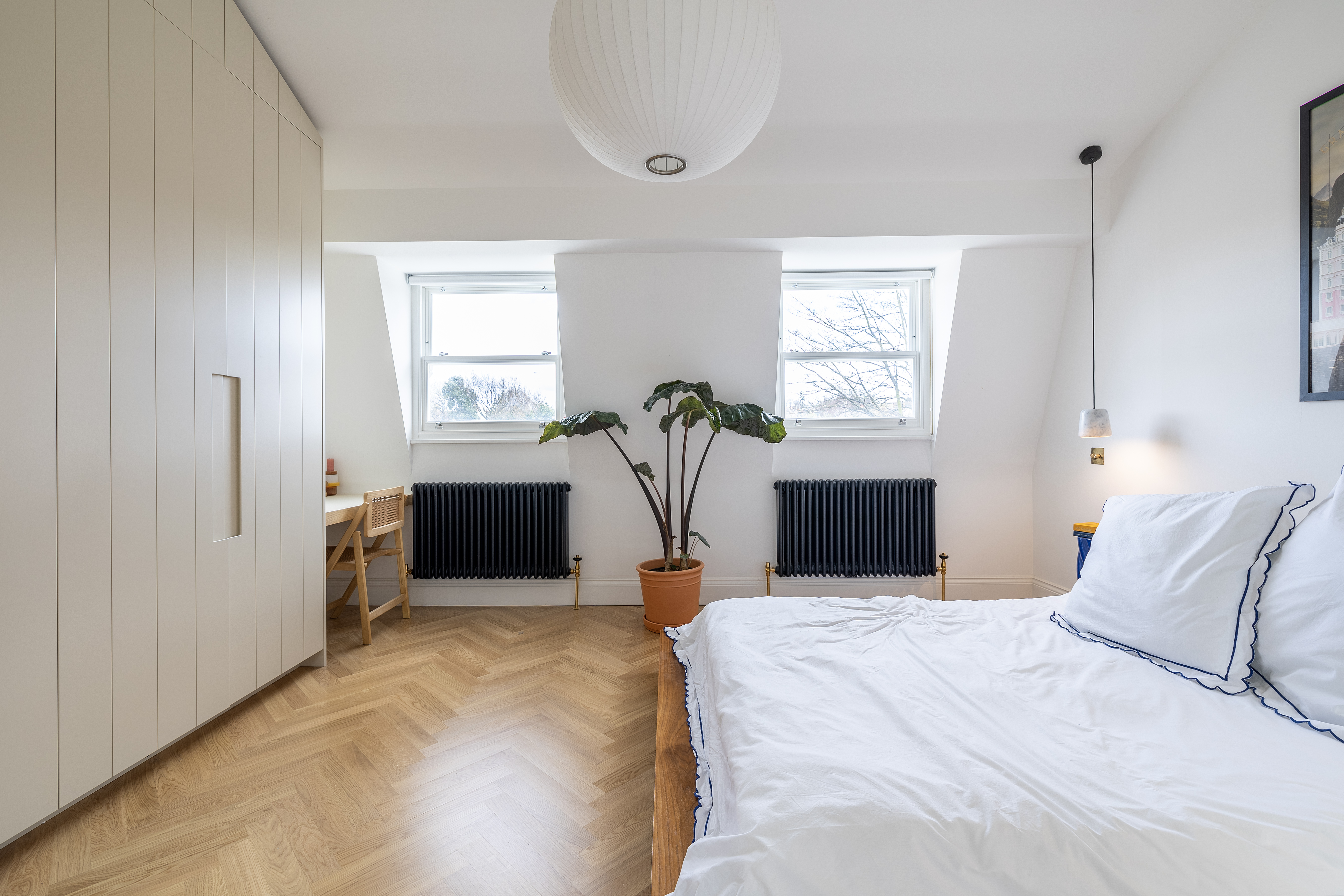
Above: Build Team loft conversion in E17.
Financially, these conversions can be a smart move. Historical reports, like Zopa's in 2017, showed an excellent 70% return on investment. Nationwide data shows that loft conversions can boost property value by a tremendous 23%.
In fact, loft conversions are often cited to offer some of the best ROIs of any home improvement project because they’re a cost-effective way of adding an extra bedroom. Increasing the number of bedrooms in your property often nudges it up into a new price bracket.
The kitchen is often described as the heart of the home, and rear extensions extending the kitchen can make it stronger. In some cases, it’s possible to transform the ground floor into a beautiful open-plan kitchen-living space.
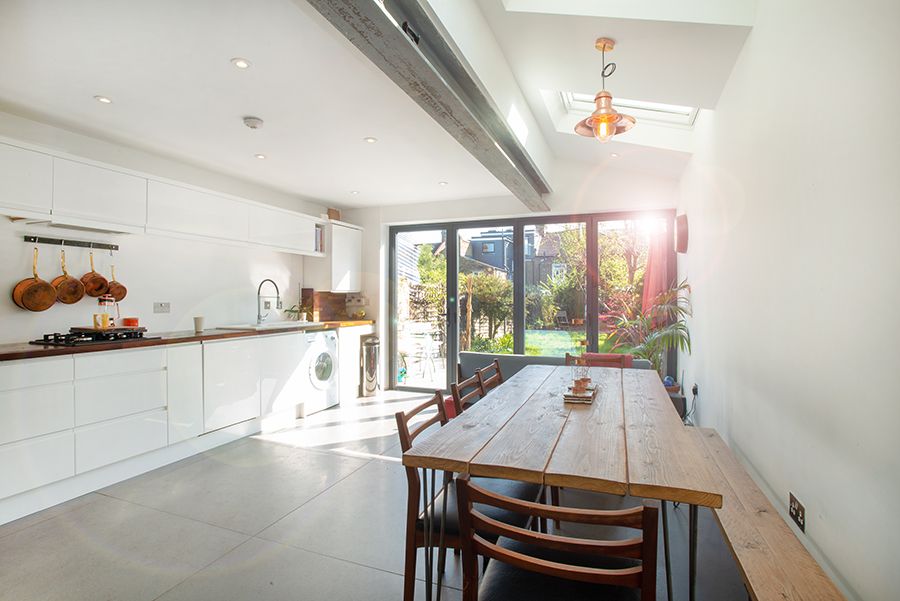
Above: Kitchen/ground floor extension in E9.
These extensions are not just about gaining square footage – they redefine the dynamics of daily life, facilitating a flow between cooking, dining, and relaxing in a single, open-plan space.
Zopa highlighted a 51% ROI for such undertakings, while another study from Chancellor's suggests that a new kitchen may elevate a home's value by 5 to 15% – and that’s without the extension.
In urban settings, where space is at a premium, the narrow alleyway (technically called a side return) beside a house can be the perfect opportunity to extend.
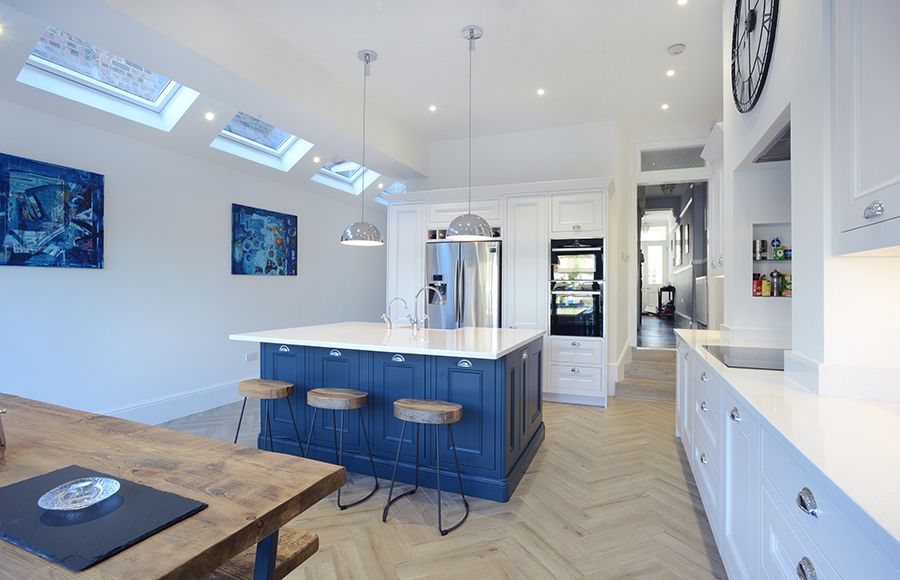
Above: Extension project by Build Team in N10.
Precise figures on ROI for side return extensions are harder to come by, but they generally align with the broader extension market, potentially increasing home value by 10 to 25%.
The results of converting city homes, like Victorian terraces, with side return extensions are often stunning.
For those who want to unlock maximum space from their ground floor, wraparound extensions are the way to go.
They involve extending both the rear and the side of a property, essentially combining a side return with a rear extension. This approach can significantly increase the footprint of a home and, with it, its value.
While the costs may be higher due to the scale, the investment is proportional to the comprehensive design possibilities and the extensive space created.
This can propel a property into a considerably higher pricing bracket. It can turn a small terraced home for a couple or houseshare into a vast and attractive family-friendly home, for example.
These ambitious projects promise not just additional living or dining space but also extra bedrooms or bathrooms.
While two-storey extensions represent a huge transformation, the value they create is proportional. In some cases, they can even add two extra bedrooms in addition to a new kitchen or extended living space.
Want to really max things out? Combine a two-storey extension with a loft conversion!
Here are three case studies demonstrating how investing in a house extension might unlock profits.
Please take into account the following key points:
The scenarios described should serve as a guide and are based on hypothetical rates. The actual interest rates will differ, influenced by individual financial standing and market conditions.
The Annual Percentage Rate of Charge (APRC) is a measure that encapsulates the yearly cost of a loan, factoring in both interest and any additional fees that come with the borrowing.
Should you opt for a mortgage or a loan secured by your property, it’s crucial to stay up-to-date with payments. Failure to do so could give the lender the right to your home.
Keep in mind that the total cost you incur from a loan extends beyond the principal and interest. It also encapsulates other possible expenses, such as arrangement or legal fees.
Many loan agreements permit you to pay more than your scheduled monthly amount, up to a certain percentage of the owed balance annually, without extra charges. However, the specific terms of this flexibility can vary between different agreements.
It’s vital to evaluate whether the regular repayments are manageable within your budget and understand how the interest paid over time impacts the total cost of your loan.
The advantage of investing in home expansions is that it may raise your property’s market value, potentially offsetting the cost of borrowing or even generating profit if you decide to sell.
Jennifer's Initial Investment: £25,000
Financing Cost Over 5 Years (7.5% APR on a personal loan): £4,800
Total Cost of the Project: £29,800
Projected Increase in Home Value (up to 15% of current home value of £200,000): up to £30,000
Projected Property Value After Extension: £230,000
Potential Net Profit: £230,000 (new value) - £200,000 (original value) - £29,800 (project cost) = £200
In this case, Jennifer breaks even on the cost of her kitchen expansion with the potential for further profit if the market appreciates.
Mark and Alex's Initial Investment: £45,000
Financing Cost Over 5 Years (4.94% APR remortgage): £11,655
Total Cost of the Project: £56,655
Projected Increase in Home Value (21% of current home value of £300,000): £63,000
Projected Property Value After Extension: £363,000
Potential Net Profit: £363,000 (new value) - £300,000 (original value) - £56,655 (project cost) = £6,345
Mark and Alex see a modest profit after their loft conversion when considering both the cost of the project and the increase in property value.
Sophie and Rob’s Initial Investment: £60,000
Financing Cost Over 3 Years (5.29% APR on a secured loan): £10,240
Total Cost of the Project: £70,240
Projected Increase in Home Value (23% of current £400,000 home value): £92,000
Projected Property Value After Extension: £492,000
Potential Net Profit: £492,000 (new value) - £400,000 (original value) - £70,240 (project cost) = £21,760
Sophie and Chen realised a significant profit from their two-storey extension after covering both the investment and the finance costs.
Financial data, historical trends, and the immeasurable value of personalised space all point to a singular truth: well-planned, well-executed extensions are not just about extending a home but enhancing a life.
However, the path to extending a home must be tread wisely. Professional guidance is absolutely essential, and it’s important not to rush into things. Choose a reputable company to help you design your extension and build it.
That’s where Design Team comes in. We’ve helped numerous homeowners through our company Build Team and are now offering our design and drawing services in an exclusive all-in-one package.
Contact us here to find out how we can help you.
Book a free Design Consultation with one of our team to discuss your project in more detail.
.jpg)
11-11-24 6
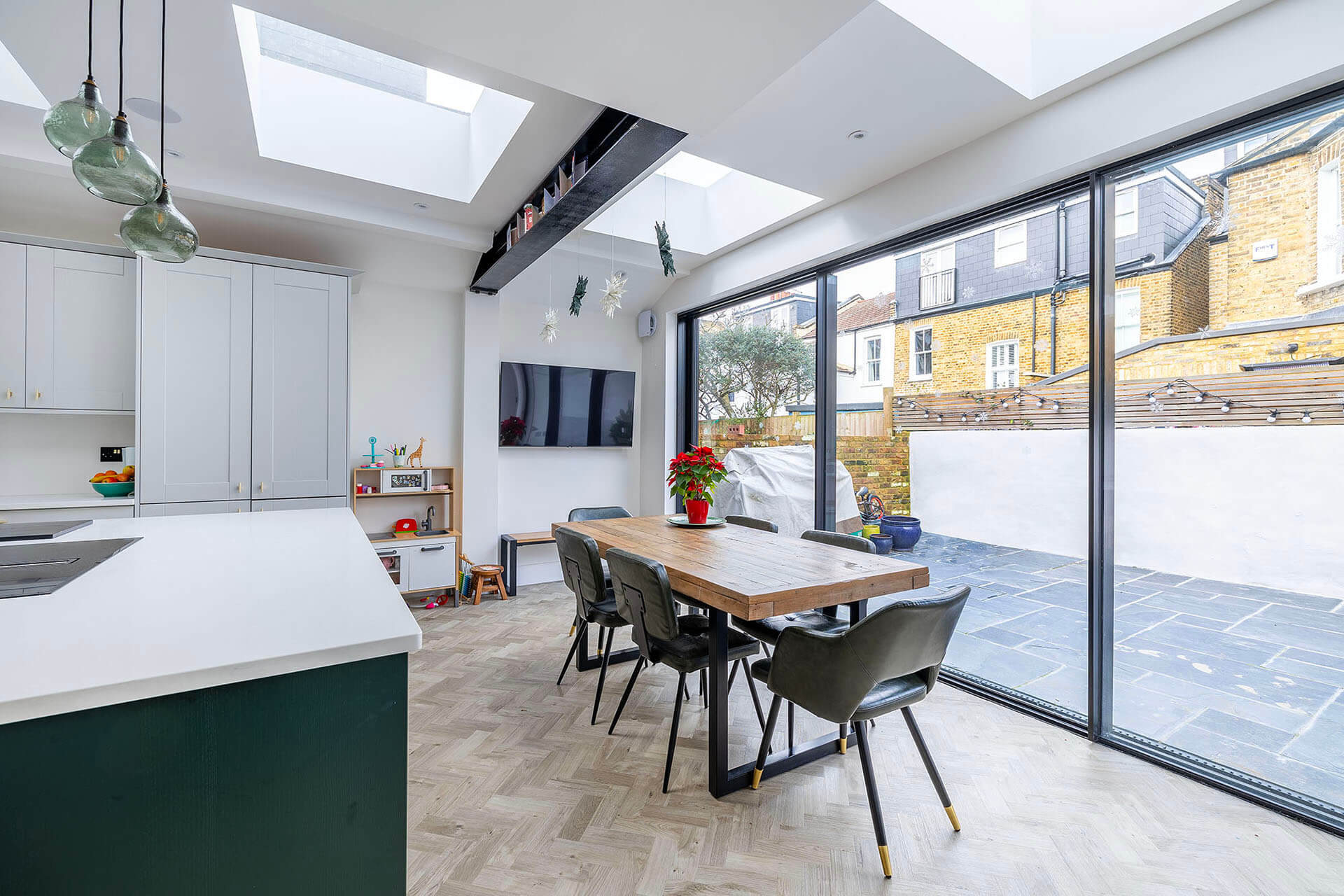
10-11-24 6
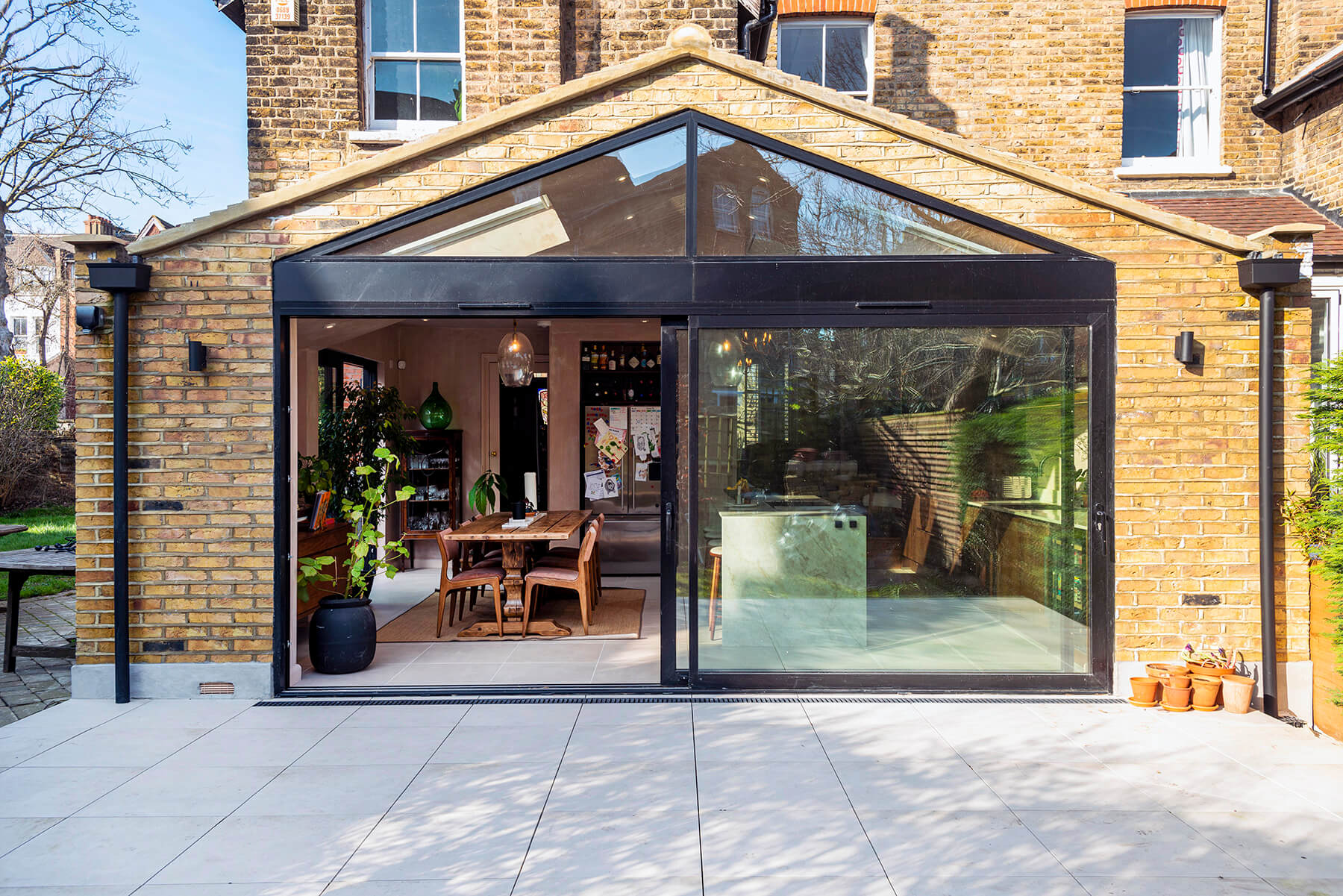
25-10-24 6